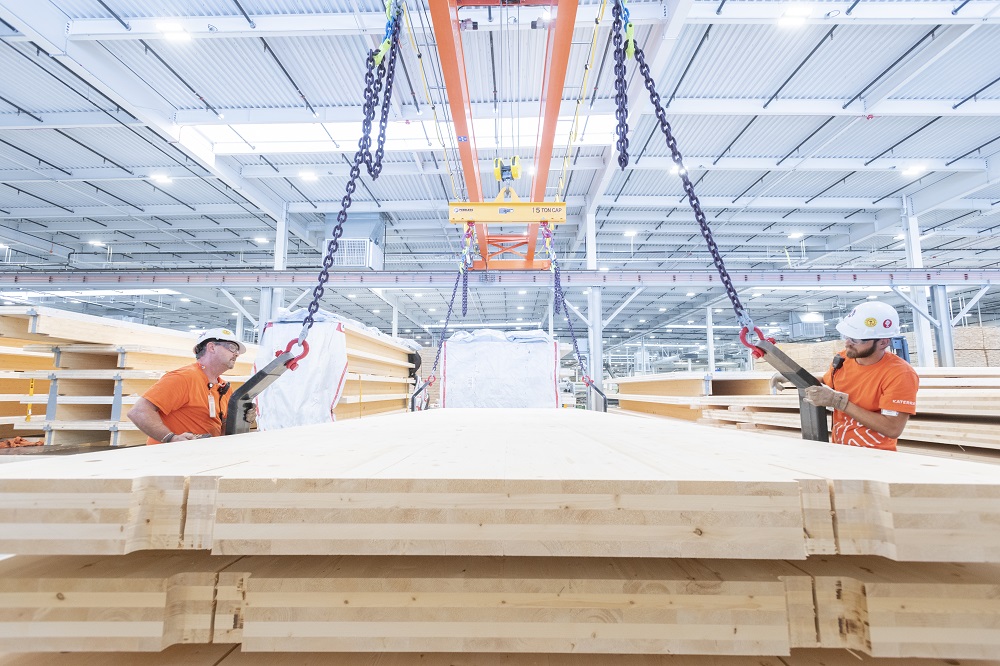Green building is not just a trend anymore, it is making huge impacts all across the construction industry, whether by government regulation or market shifts. According to the US Green Building Council, the Green Construction Industry will account for 1/3 of all construction projects by the year 2018. That’s certainly something to pay attention to. But it’s not just building practices that are affected by green building trends, products are affected, as well. A startup company in Raleigh, North Carolina has a solution for the high carbon dioxide emissions created by firing bricks in kilns: growing them in a plant with bacteria and water.
BioMASON was founded by Ginger Krieg Dosier in 2012 after she took a deep look at how coral was formed, which is a very hard cement-like material grown strictly by nature. A standard brick used across the construction industry today is heated in a kiln at roughly 2000 °F (1090 °C) and most commonly use natural gas as fuel. This process has a huge impact on the environment, with some estimating up to 8% of all global carbon emissions.
Dosier’s bricks, however, require no heat to harden the material, only sand, bacteria, and water. After sand is packed into rectangular brick molds, bacteria is added, which begins a reaction that forms calcium carbonate crystals. As nutrient water is sprayed onto the molds, the crystals continue to grow, further hardening the brick. The entire process takes 4 days right now, but that is much faster than the naturally occurring process in nature.
After winning an international design award and earning a large prize for winning Richard Branson’s Postcode Lottery Green Challenge, the next big hurdle for bioMASON to pass will be the minds of construction professionals around the world. It’s not easy to get people to change from using products they’ve been using for decades, but they’re certainly going to give it a shot. In February, bioMASON is moving to a much larger facility, which will allow them to produce upwards of 5,000 bricks per day.
What would it take you to switch to using these bricks on your next job?
Full story: How This Startup Is Using Bacteria to Grow Bricks From Scratch | Inc











Like most of the other electric machines that have been announced previously, Volvo promises that this midsized, 14 metric ton excavator will have the same performance as a similarly sized diesel version. The X03 is currently in the concept stage, so Volvo does not have immediate plans to bring it to market, but it shows the possibilities that electronics on heavy machinery can allow for.